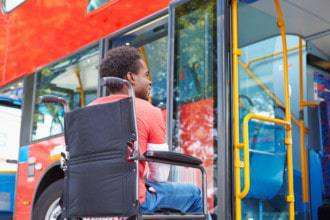During the campaign, then-candidate Donald Trump promised not to cut funding for Social Security or Medicaid. However, the American Health Care Act recently passed by the U.S. House of Representatives would cut more than $800 billion from the program.
Now, many parents are wondering how those cuts could affect their families.
All across the country, thousands of single parents and families rely on programs like Medicaid to help pay for essential health services for their children.
The U.S. Centers for Disease Control and Prevention estimates that 62% of adults between the ages of 18 and 64 went to the dentist in 2014. Even though dental insurance coverage is a luxury for many people, state Medicaid programs are required to cover dental care for children. However, if significant cuts are made to Medicaid, states might be forced to scale back the healthcare services they cover.
One mother told Wisconsin Public Radio that she’s already nervous about how the cuts would affect her 14-year-old son Mickey, who was born with a congenital brain abnormality. Kelli Simpkins told WPR:
One of Mickey’s daily medications costs more than $1,900 a month, Simpkins said. Medicaid pays for that prescription and also covers in-home support and school therapy.
“A lot of these services are optional supports under Medicaid in Wisconsin, including the prescription coverage,” she said. “So losing that would be detrimental to our family. We wouldn’t be able to afford everything he needs to live a full and healthy life.”
In states like West Virginia, 53% of kids are covered under Medicaid, meaning one in two children could be affected. In California, 42% of children have coverage under a similar program called Medi-Cal. And in most states, at least 20% of kids are insured under Medicaid. But if federal funding for Medicaid is reduced, parents may struggle to pay for even regular checkups with pediatricians — if they can even find a doctor who will accept Medicaid patients in the first place. If states are forced to reduce payments to physicians through Medicaid, more doctors might stop accepting kids covered under the program.
The estimated cuts to Medicaid could be between 30 and 40% of the multi-million-dollar budget. But while these cuts would likely be the most substantial, the administration could also cut millions of dollars from the nation’s food stamp program. That program covers 43 million low-income Americans, of which 70% are families with children.
Then there’s the Social Security Income program, which provides services to 8.4 million low-income and disabled individuals, including 1.3 million kids who are blind or who have disabilities. Many of the kids who receive this cash assistance are enrolled in special education courses and live with a single parent.
There are other reasons for single parents to be worried about potential cuts to social services. Programs like Head Start could also be on the chopping block, which would disproportionately affect single moms in cities like Detroit.
For now, budget cuts have not officially been announced, and the AHCA still has to pass the Senate, where it may receive significant changes. For now, many single parents are taking a wait-and-see approach.


